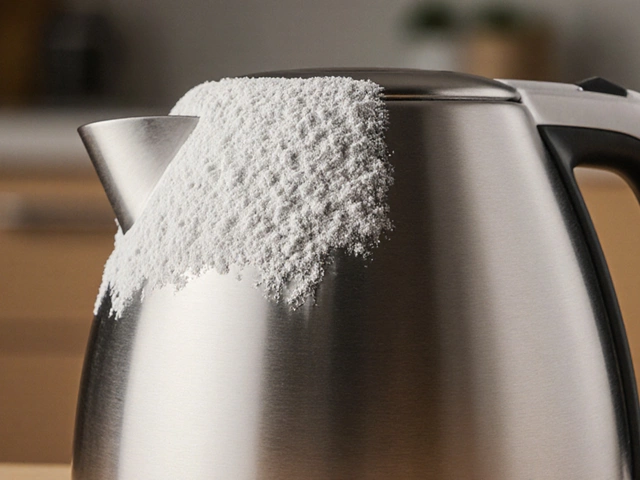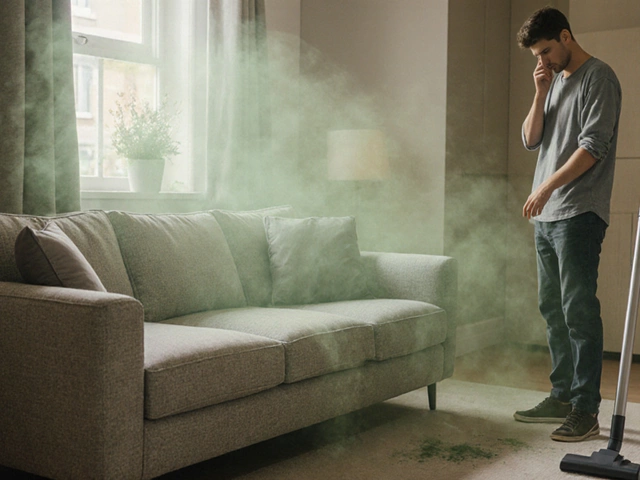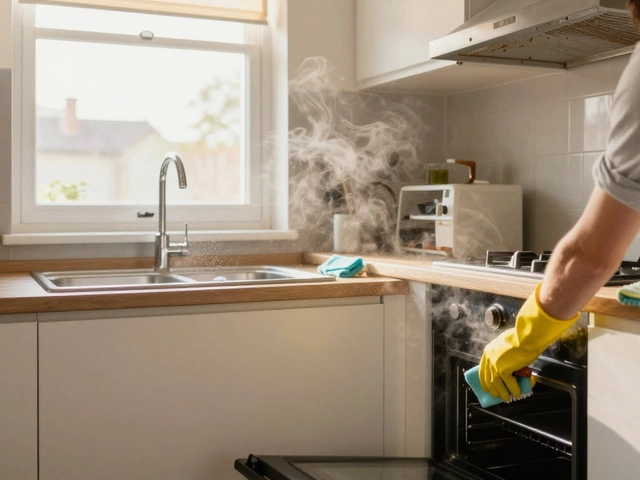That weirdly satisfying feeling after you clean out a junk drawer or finally sort your closet? There’s actually a solid reason for it—it’s not just in your head. A bunch of studies show a tidy environment can lower your stress and help you focus. When your space is a mess, your brain has to work harder to filter out distractions, which drains you over time.
Freshly cleaned spaces also come with a hit of dopamine—the same chemical your brain releases when you eat chocolate or find twenty bucks in an old jacket. It’s your brain’s way of saying, “Hey, good job.” Some therapists even suggest that cleaning is a small way to take control when life gets overwhelming. You might not be able to fix everything in the world, but you can wash the dishes or vacuum the living room.
It’s not about being some perfect neat freak, either. Even something quick, like tossing out expired sauce packets or wiping down the counters, can give you that instant mood boost. That’s partly why spring cleaning stands out—it’s a seasonal excuse to start fresh and make the place feel more like you again.
- The Science Behind Feeling Good
- Decluttering Your Mind by Tidy Spaces
- Small Tasks, Big Rewards
- How to Get Motivated When You Don't Feel Like Cleaning
- Making Spring Cleaning Actually Fun
The Science Behind Feeling Good
Ever cleaned your kitchen and suddenly felt lighter or even a little proud? There's some solid science behind that. Your brain reacts to getting rid of clutter and mess with a hit of dopamine—a chemical that makes you feel happy and motivated. Researchers at Princeton found that visible mess actually competes for your attention, making it tougher for your brain to focus. No wonder a clear countertop can make you feel less anxious.
There’s also a link between spring cleaning and better mental health. A study out of UCLA showed that families living with lots of physical clutter had higher levels of stress hormones. It’s not just about looks: the stuff sitting out constantly reminds you of things left unfinished. When you finish a cleaning task, your brain sees it as an accomplishment, even if it’s small. That little win matters.
Cleaning even shows up in therapy as a tool for control. When life feels overwhelming, tackling a sink full of dishes gives you something you can fix right now. On top of that, moving around while you clean gives you a mild workout, which bumps up endorphins—the same feel-good chemicals released by exercise.
If you’re cleaning with windows open and sunlight streaming in, that natural light also boosts your mood by raising your serotonin. So, spring cleaning isn’t just an old tradition; it’s a built-in mind and body reset that can help you get out of your own head, at least for a little while.
Decluttering Your Mind by Tidy Spaces
If your home or workspace is messy, it can feel like your brain is messy too. There’s plenty of research showing that clutter ramps up stress and makes it harder to focus. One study from Princeton University found that visual clutter limits your ability to process information, because your brain’s always fighting to tune it out.
The mental payoff for tidying up isn’t just in your head. UCLA researchers tracked families and saw that mothers with more cluttered homes had higher levels of cortisol, the main stress hormone. In plain English: more mess, more stress. It’s not that you need an empty space, but having too much stuff around all the time actually grinds you down.
When you clean up, you’re not just moving things—you’re also giving your mind a reset. The act itself is physical, but the effects reach your mood and attention span. Here’s a quick look at how a clean space can pay off for your brain:
| Benefit | What Changes |
|---|---|
| Less Stress | Lower cortisol levels |
| More Focus | Fewer distractions |
| Bigger Productivity | Tasks seem easier to start |
Getting started doesn’t mean you have to deep clean everything at once. Try tackling a small spot—like the nightstand or a bathroom drawer. You’ll likely notice that clearing one area can quiet some background mental noise too.
- Pick just one area—don’t try to do the whole house in a day.
- Set a timer for 15 minutes. Race it. See how much you can get done.
- Toss or donate things you haven’t used in a year (yes, even those old charging cables).
- Use baskets or boxes to sort things by type. Grouping stuff cuts down decision fatigue.
Spring cleaning isn’t just about looking tidy. People who keep up simple routines—like making the bed, putting dishes away, or putting dirty socks straight in the laundry—report feeling happier at home. Even if you’re just picking up after your dog Sable like I do, every little effort to declutter your space is a step toward a clearer head. And remember, the magic keyword here is spring cleaning—it’s more than just a to-do, it’s sanity for your brain.

Small Tasks, Big Rewards
Ever feel like spring cleaning is this huge mountain you’ll never finish? Here’s the good news: you don’t have to tackle the whole house at once. Tons of research proves that breaking cleaning down into short, manageable tasks actually makes people more likely to start—and keep going. For example, one study from Princeton found that visual clutter competes for your attention, making you feel more distracted and less productive. Simply clearing your desk or making your bed can instantly help you think clearer.
Knocking out small jobs delivers those quick wins your brain craves. It’s the classic snowball effect: do one tiny thing, like wiping off the fridge handle, and suddenly you want to do more. This is dopamine in action—your brain’s rewarding you for progress. Even picking up pet toys (like I do daily for Sable) counts. The mental boost kicks in faster than you’d think.
- Start with a five-minute task—sort just one drawer, not an entire dresser.
- Set a timer for 10 minutes and see how much you can get done. You’ll surprise yourself.
- Break a big area into zones. Clean just the sink or one shelf at a time instead of the whole kitchen.
- High-traffic spots bring the biggest satisfaction payoff—tables, entryways, bathroom counters. Focus there first for instant results.
| Task | Time Needed | Energy Boost (User Reports) |
|---|---|---|
| Making Bed | 2 min | 84% |
| Clearing Entryway | 5 min | 77% |
| Emptying Trash | 3 min | 69% |
| Sorting Mail | 4 min | 61% |
All these little wins add up, and by the end of the week, your place (and your headspace) feel totally different. If you’re after that spring cleaning boost, don’t chase perfection. Go for progress. The sense of accomplishment after each task turns what used to feel impossible into something you actually look forward to doing.
How to Get Motivated When You Don't Feel Like Cleaning
Dragging yourself off the couch to tackle spring cleaning is rarely anyone’s idea of fun, but there are legit ways to get your brain on board. Psychologists say breaking the job into smaller bites works better than forcing yourself to do everything at once. That’s because a big, vague task like “clean the house” can trigger overwhelm, not action. Instead, zero in on one small win: clear off the kitchen table or toss old socks. Each win fuels your motivation for the next task.
"Action comes before motivation, not the other way around. Start with a tiny action, and motivation grows from there."
— Dr. Tim Pychyl, Carleton University psychologist, expert on procrastination
Research backs this up. The American Cleaning Institute found that 78% of people said even simple cleaning tasks made them feel productive and reduced anxiety. Try these easy, no-nonsense tricks to get in gear:
- Crank your favorite playlist. Music tricks your brain into believing you’re just having fun.
- Set a timer for 10 minutes. Promise yourself you can quit when it rings (but you’ll often keep going).
- Use a checklist—and actually cross stuff off. The physical action makes your progress real.
- Clean with someone—even if it’s just your dog hanging around like Sable does for me. It feels less lonely.
Here’s a quick look at the most common motivation boosters people say work for them:
| Motivation Booster | % Who Say It Works |
|---|---|
| Music | 65% |
| Setting a timer | 54% |
| Cleaning with a friend or pet | 33% |
| Making a checklist | 58% |
You honestly don’t need to wait until you “feel like it” to start cleaning. Just pick something tiny, and your energy usually starts to follow. Before you know it, you can cross spring cleaning off your list for the year.

Making Spring Cleaning Actually Fun
If you’re rolling your eyes at spring cleaning, trust me—you can make it way more enjoyable. You don’t have to become a cleaning robot or take it all too seriously. The trick is flipping the script and turning chores into games, challenges, or even social events.
First, music changes everything. There’s a study out of the University of Missouri that found people listening to upbeat tunes felt happier in under two weeks. Make a killer playlist, crank it up, and suddenly wiping the counters feels less like a job and more like getting ready for a Friday night. If you’ve got a pet like Sable wagging their tail around, even better—pets tend to reduce stress while you’re busy, according to the Human Animal Bond Research Institute.
- Spring cleaning gets easier with the right gear: use colorful cloths, fun-scented sprays, or even goofy aprons if it helps you laugh.
- Time yourself. Set a 15-minute timer per room and see how much you can get done—almost like a speed run.
- Level up the fun by making it competitive. Challenge housemates, your partner, or even your kids. Who can clean the fastest or find the weirdest lost item?
- Post before-and-after photos to a group chat or social media for a little extra motivation—and maybe some bragging rights.
- Reward yourself. After a big cleaning run, order your favorite takeout or watch an episode of your show. Don’t skip this step.
Here’s an interesting stat: According to the American Cleaning Institute, 78% of people who spring clean say they feel a real sense of accomplishment afterward—so you’re not alone if that fresh start puts you in a good mood.
| Trick | Percentage Who Use It |
|---|---|
| Listening to music | 52% |
| Enlisting family/friends | 34% |
| Setting a timer | 29% |
| Rewarding self after | 43% |
Mix it up, make it your own, but don’t try to do it all at once. Break things into small wins and celebrate those wins—you’ll pick up momentum and actually start looking forward to next time (or at least, you won’t dread it so much).




